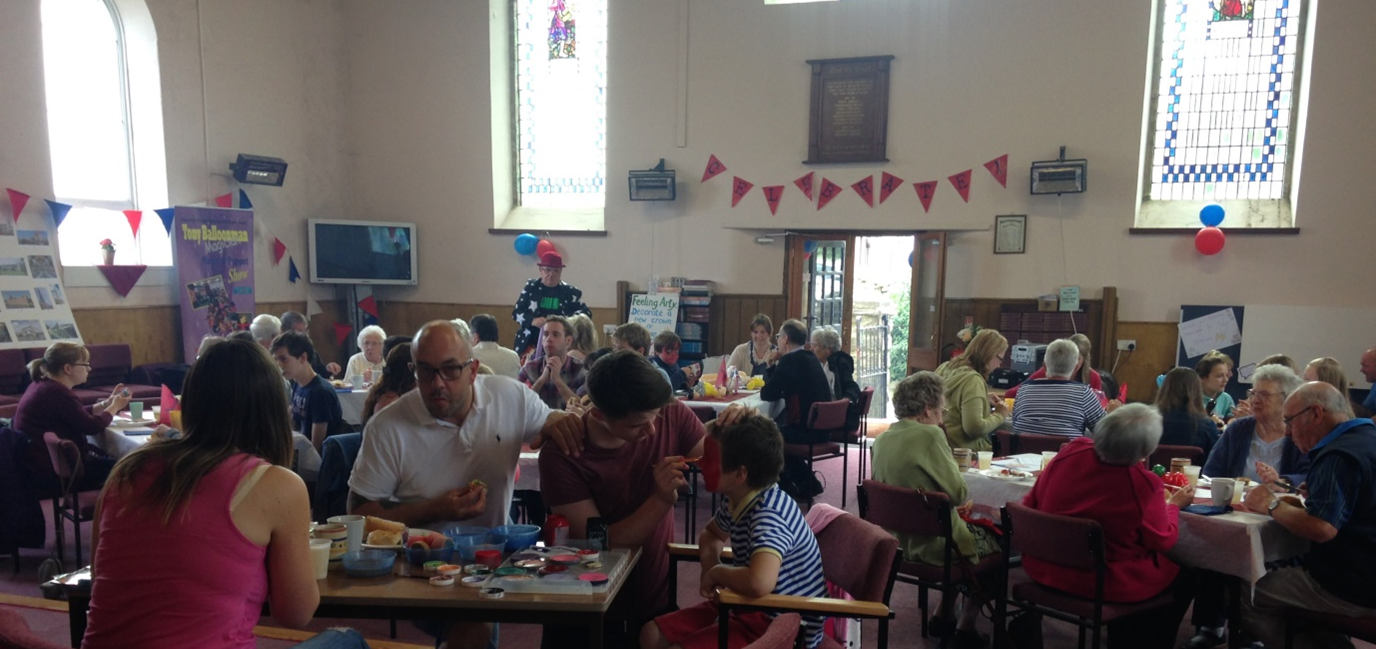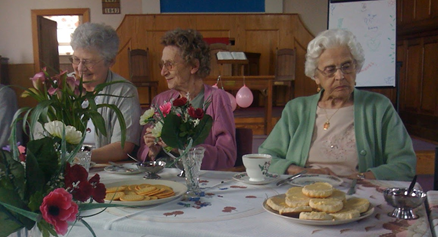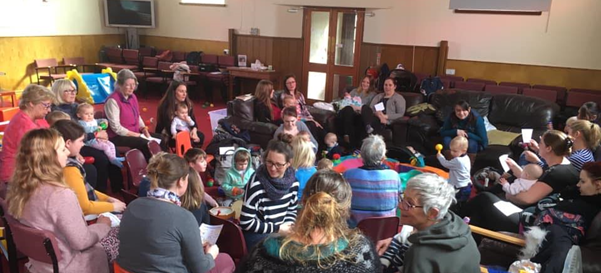Story 47 - Pioneering in the Forest of Dean
Ruardean Hill Baptist Church
Written by Suzie Abramian in conversation with Grace Tucker 23/10/2020
‘Being rather than doing’ may be a familiar phrase, and one that is sometimes used within the context of incarnational mission, but true examples of this within mission can be hard to find. The temptation to try and measure mission in terms of statistics, projects, events - in short, any kind of quantifiable activity, always seems to overrule.
In conversing with Grace Tucker, Pastoral Leader at a rural Baptist Church in the Forest of Dean and exploring the kind of pioneering work she is involved in, it is important to keep this challenge in mind. Describing herself as, ‘an ordinary housewife with 5 children,’ she was miraculously called to be the part time minister of Ruardean Hill Baptist Church twelve years ago. The journey for Grace since that initial calling has involved looking at a deeper understanding of what is means to actually be church as salt and light in the world and it has also resulted in the church she leads sharing in this journey as well.
 Grace recalls how when she began, she always had a clear vision to steer away from leading the church down attractional routes, saying there was the feeling that, ’the walls have to come down, we have to be a presence in the community.’ Arriving to an elderly congregation of 8 people ageing from 60-90 years old, there was importantly a spirit of unity in the church and furthermore a huge desire for adventure. The congregation also gave great encouragement for Grace to lead, with words such as “Grace, you hear from God - go for it!” This maybe explains how the outworking of their community involves their Sunday gatherings on sofas in the church and also how they were able to start a youth group, not merely for the sake of it, but out of sincere love for the children and for their families too. In a rural community with no shops or any other community building, the church building has also proved an asset, rather than a barrier, when it is a clear point of gathering for the local community.
Grace recalls how when she began, she always had a clear vision to steer away from leading the church down attractional routes, saying there was the feeling that, ’the walls have to come down, we have to be a presence in the community.’ Arriving to an elderly congregation of 8 people ageing from 60-90 years old, there was importantly a spirit of unity in the church and furthermore a huge desire for adventure. The congregation also gave great encouragement for Grace to lead, with words such as “Grace, you hear from God - go for it!” This maybe explains how the outworking of their community involves their Sunday gatherings on sofas in the church and also how they were able to start a youth group, not merely for the sake of it, but out of sincere love for the children and for their families too. In a rural community with no shops or any other community building, the church building has also proved an asset, rather than a barrier, when it is a clear point of gathering for the local community.

With the average age and small size of the congregation there have been obvious physical limitations, yet this doesn’t seem to have inhibited the movement of God. In fact, it seems to have given greater space to focus on how as followers of Christ they should love God and love others rather than spending disproportionate amounts of time in service planning, as Grace notes on a very practical level, ‘you can’t sustain the system when you’re so small.’
Looking more closely at the church community and the rural context, Grace describes how they are geographically very scattered with a good number of the congregation travelling many miles from other rural communities nearby. Rather than feeling challenged by this distinctive, Grace notes how the church have been looking instead at how to celebrate it. This in turn has resulted in their understanding of church being challenged as they have felt they also being church wherever each member of the congregation comes from, to the extent that Grace says, ‘it feels like God is turning our understanding inside out of what it means to be church.’ In seeing that the church is being the presence of God wherever they are, in fact a missional community, Grace has found that instead of programmes, meetings and activities it’s the deepening relationship with Jesus that produces fruitfulness within the worshiping community and neighbourhood at large. It’s all about Him and joining with Him as He brings things to life!
